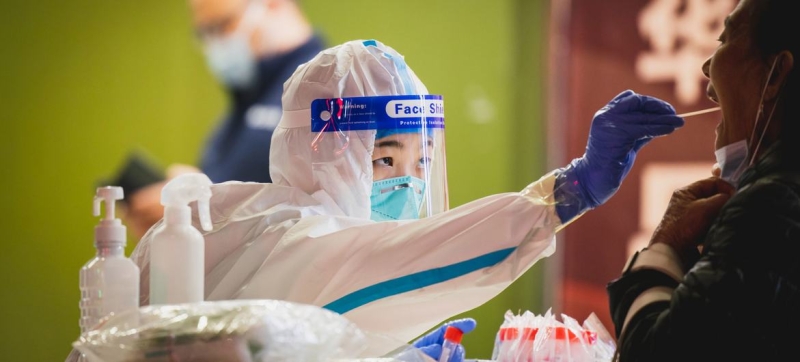
A woman gets tested for COVID-19 in Shenzhen, China. Global healthcare architecture needs a reboot, experts say Healthcare
With the instability and uncertainty plaguing the planet, protecting against future pandemics requires not just preparedness, but a fundamental rethinking of approaches to combating them. A global report launched at the World Health Summit in Berlin on Tuesday makes a clear call to invest in primary health care, real-time risk monitoring and strengthened international cooperation.
The 2025 report, entitled “The New Face of Pandemic Preparedness,” was produced by the Global Preparedness Monitoring Board, an initiative created in the wake of the Ebola epidemic in West Africa and supported by the World Health Organization (WHO) and the World Bank. The Council monitors how prepared the world is for new health challenges. “True preparedness is not possible without sustainable and well-funded primary care systems,” said Kolinda Grabar-Kitarović, Council Co-Chair and former President of Croatia. “Such systems not only provide basic health care in times of calm, but also build trust, which is vital in times of crisis.” Five years into the COVID-19 pandemic, the world is changing rapidly: technology is opening up new horizons, from data analytics to rapid vaccine development, but at the same time there is a growing flow of misinformation, increasing mistrust, and geopolitical tensions. undermines preparedness efforts. In this context, the Council proposes to rebuild the architecture of global health by focusing on three key areas: caring, analysis and collaboration.
- Caring is strengthening advanced health systems, investing in primary care, community engagement, and protecting health workers.
- Analysis – creating a risk monitoring system that monitors threats, vulnerabilities and preparedness levels in real time, integrating health, social, economic and environmental data into clear signals to policymakers leaders.
- Collaboration is the architecture of health care based on solidarity and equity. The report calls for ratification and funding of the WHO Pandemic Agreement, implementation of a pathogen sharing system, and continued implementation of the updated International Health Regulations.
The report is based on the Monitoring Framework, which was developed over two years and was introduced in 2023.
